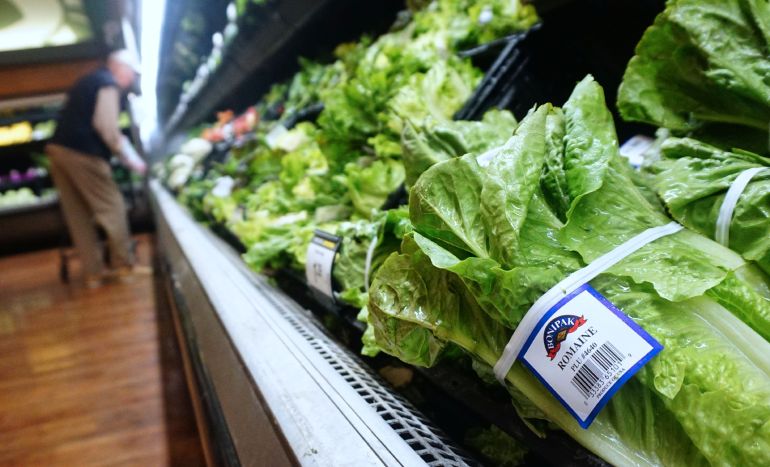
The E. coli outbreak scare is over! “This outbreak appears to be over,” the US Centers for Disease Control and Prevention (CDC) said Wednesday.
Apparently people were becoming ill as early as October from an outbreak of E. coli. All in all during this time 62 people in 16 different states ended up with symptoms of sickness from E. coli and the number of people that were hospitalized were 25.
There were no deaths thank goodness this time around. The first outbreak of E.coli illness linked to romaine lettuce grown in Yuma, Arizona happened last spring and 210 people became ill and five died.
Then a week later on November 26 the CDC announced that romaine lettuce from the Central Coastal regions of Northern and Central California should be avoided.
A week later an announcement on December 6, from the US Food and Drug Administration (US FDA) narrowed down the counties from where they thought the E.coli tainted produce were grown: Monterey, San Benito, San Luis Obispo, Santa Barbara, Santa Cruz and Ventura, California.
However, the CDC could not pin point which grower, supplier, distributor or brand of romaine lettuce could be the source of the illness. And so it continued to issue a warning that romaine lettuce was not safe to eat if they were labled to have come from those northern counties in California.
Further investigation continued by federal investigators of the US FDA and the CDC. Finally on December 13, it was determined by both agencies that the source of the outbreak came from sediment from a water reservoir on a farm in Santa Barbara County, California.
Investigators were able to narrow it down specifically to Adam Bros. Farming Inc. in Santa Barbara County. They further determined that red leaf lettuce, green leaf lettuce and cauliflower also had been tainted by the reservoir water and immediately recalled all such produce.
The recall was not limited to just wholesale produce, but it also included products the produce were used in such as sandwiches made by other food businesses.
The CDC said that all produce involved in the outbreak should no longer be available and only 3 new cases of E.coli illness have been reported since.
Generally speaking, E.coli is killed by heat when food is cooked.
